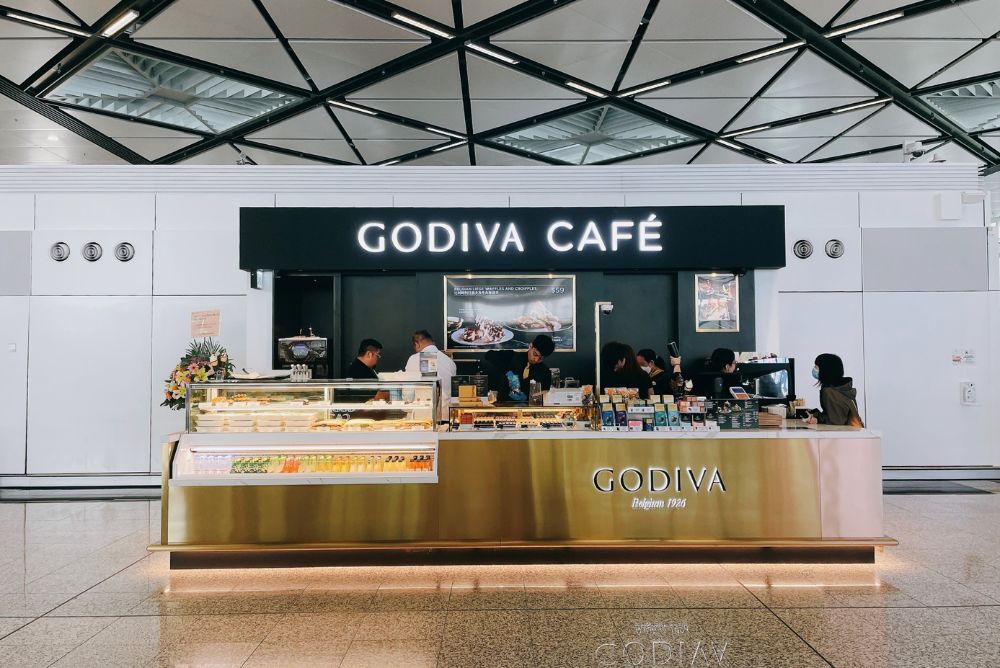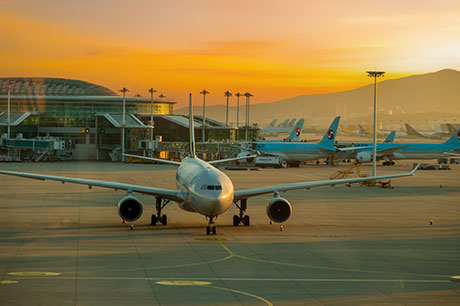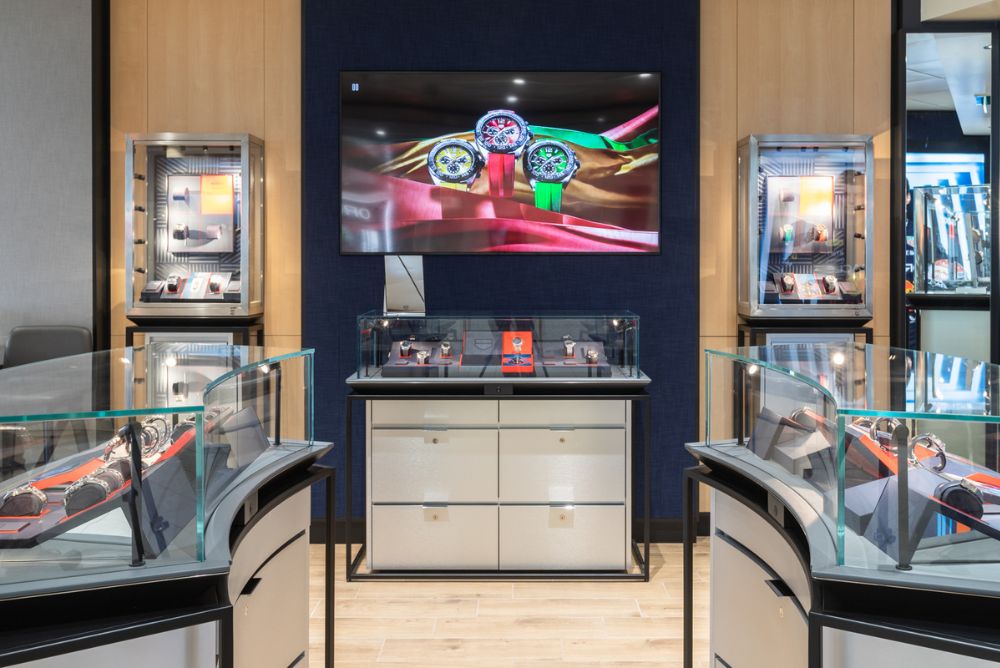Airport VAT: retailer and HMRC viewpoints
By Charlotte Turner |
 UPDATED: In conversation with TRBusiness, HM Revenue & Customs has been able to shed some light on the issue of VAT charged on airport goods, which has been shrouded in controversy following a media furore which exploded last week.
UPDATED: In conversation with TRBusiness, HM Revenue & Customs has been able to shed some light on the issue of VAT charged on airport goods, which has been shrouded in controversy following a media furore which exploded last week.
As previously reported, well-known UK High-Street retailers and global DF&TR retailer World Duty Free, have come under attack from the UK press for allegedly ‘ripping off’ customers at the airport and banking ‘millions’ in the process.
Research conducted by The Independent newspaper – and circulated by many others including the BBC, Mail Online and The Telegraph – suggested that ‘the majority of airport stores are passing little, if any, of their savings onto customers’ and using the tax rebate to boost their profits.
But after speaking directly with HM Revenue & Customs TRBusiness was told the following: If the airport customer is travelling outside of the EU then the retailer can apply 0% rate VAT, as long as the retailer provides evidence that the passenger is actually leaving the EU. As has been widely reported, this ‘evidence’ is readily obtained by scanning that customer’s boarding card.
WHERE ARE THE SAVINGS FOR CUSTOMERS?
Whether the retailer then subsequently chooses to pass this saving on to their customer is entirely up to them. [Crucially, many UK airport retailers do pass this VAT saving on to their passengers, including Harrods, High-Street fashion brands such as Fat Face and Accessorize and others etc.]
As has been widely reported, Dixons Travel, WH Smith and Boots make the decision not to pass this ‘VAT saving’ on to the customer. However, this certainly doesn’t mean they are effectively ‘making millions’ in the process, or ‘ripping off’ customers, as has been reported by many members of the UK press and then picked up by foreign media.
As Boots correctly highlights [see statement below], operating costs at the airport are considerably higher within an airport compared to the high street [high rent smf longer opening hours are just two factors which contribute to this]. Therefore by keeping its prices consistent across all of its stores, Boots says it is effectively lowering its prices at the airport.

MAG, which operates four UK airports, including Manchester Airport (pictured) refused to comment stating that this was a matter for retailers to deal with.
In an attempt to gain further clarity on this issue and an airport perspective TRBusiness contacted Manchester Airports Group (MAG) – which operates Stansted, Bournemouth, East Midlands and Manchester airports – as well as Heathrow Airport.
MAG refused to comment stating that this was a matter for retailers to deal with, while Heathrow Airport Holdings (HAH) also said it could not comment.
Nevertheless, this has not prevented airport retailers from defending their actions, which have been deemed ‘disgraceful’ by some newspapers. Following the recent accusations, popular UK High-Street retailer, Boots has issued various statements about its pricing structure, apparently standing firm in its convictions.
However, it has decided to no longer ask customers to show their boarding passes. “At Boots UK, we want to make shopping in our airport stores a truly convenient experience,” says the company.
BOOTS REMOVES ‘CONFUSION’ BY NOT ASKING FOR PASSES
“It has never been compulsory for customers to present their boarding passes in order to be served in Boots’ airport stores. We are not a duty free retailer and many items available in Boots are subject to zero or a reduced rate of VAT.
“At Boots we always listen to our customers and to help remove any confusion at this time, we have taken the decision to no longer ask customers to show us their boarding passes while we undertake a longer-term review of this situation. We are currently in the process of notifying our airport store colleagues of this change.”
Boots has said – and verbally clarified to TRBusiness – that rather than offering different price points to some customers travelling outside the EU, it wants ‘all customers to benefit from consistently low prices’.
“In fact, over the past few years we have invested in lowering prices in our airport stores, despite operating costs at airports being higher than in other locations,” it adds. “We already offer the lowest prices of any retailer on many items sold airside.”

“Boarding passes must be presented when purchasing all products in order to enable WDF to correctly account to HMRC for Customs duties and VAT as appropriate,” says WDF.
HOW IT WORKS FOR DUTY FREE RETAILERS
Of course there are different rules for duty free shops or ‘export shops’ as they are referred to by the HMRC. According to Her Majesty’s Revenue and Customs, duty free retailers pay tax at the point of sale – if the customer is travelling within the EU – and if the customer is travelling outside the EU they don’t pay the tax. This same rules applies for all categories as has now been clarified by World Duty Free.
In response to the media’s questions (including those submitted by TRBusiness) World Duty Free reissued it’s original press statement – first issued on Tuesday last week – on Thursday 13 August with this additional text: “[The guidelines provided by the HMRC are] supplemented by a separate agreement between WDF and HMRC (the Bespoke Retail Agreement Scheme) which stipulates that boarding passes must be presented when purchasing all products in order to enable WDF to correctly account to HMRC for Customs duties and VAT as appropriate.”
HMRC confirmed to TRBusiness that no matter what is being sold, the HMRC needs this information because WDF sells both duty suspended and duty free stock.
In a statement given to TRBusiness HMRC says: “Airside shops in airports can apply a zero VAT rate to goods bought by passengers intending to take them to non-EU destinations. The retailer must retain suitable evidence of the passenger’s destination such as by scanning the boarding card.
“HMRC cannot comment on the commercial pricing policies of individual retailers.”
In response to some questions submitted by TRBusiness WDF was able to provide further clarity on its pricing structure, explaining that the company does pass all VAT savings on to its customers, “regardless of whether they are travelling within the EU or outside of the EU and we account to HMRC for the 20% VAT due on all intra EU purchases.”
“We offer the equivalent ‘tax free’ price to all customers – regardless of where they are flying – on all our fragrance and beauty products. The equivalent tax free reduction is 20%. If we are able to reduce prices further for our customers – for example by negotiating with our suppliers to provide travel exclusive products or sizes – we strive to do so.”
Background provided by the HMRC:
- Exports are zero rated subject to evidence that the goods have left the EU. By concession, airside retailers are treated as exporters and may zero rate sales of goods to passengers intending to take them to destinations outside of the EU. In such cases a boarding pass for a non-EU flight is accepted as evidence that the goods will leave the EU.
- Many airside retailers have sophisticated till systems which allow them to scan boarding passes and the till system will identify if a particular flight is to an EU or non-EU destination and thereby record it as either a standard rated domestic sale or a zero-rated export.
- The original concession was introduced in the early 1990s and, following the withdrawal of duty free sales for intra-EU passengers in 1999, was amended to apply to goods exported by passengers travelling to non-EU destinations only.
- Sales in duty-free shops are tightly controlled as they can hold goods (such as alcohol and tobacco) where the duty or VAT has been suspended. To ensure sufficient controls are in place, HMRC requires duty-free outlets to provide evidence of destination for all goods sold.
- In other airport shops there is no requirement from HMRC to show a boarding pass, but if the retailer wishes to apply a zero rate of VAT to the sale of goods intended for non-EU destinations then they must obtain some evidence.
- Catering services at the airport are subject to VAT.
Alcohol insights: Conversion up, spend down in Q4
Conversion of visitors in the alcohol category in duty free has risen to 54% in Q4 2023,...
Heinemann Asia Pacific makes breakthrough in New Zealand at AKL
Heinemann Asia Pacific is set to enter the New Zealand market with three new retail concepts at...
Men buy and spend more in travel retail says new research by m1nd-set
Men have a higher conversion rate and spend more when shopping in travel retail, says new...

In the Magazine
TRBusiness Magazine is free to access. Read the latest issue now.

 Trbusiness. The travel retail Trbusiness. The magazine for global retail and duty free professionals.
Trbusiness. The travel retail Trbusiness. The magazine for global retail and duty free professionals.





















